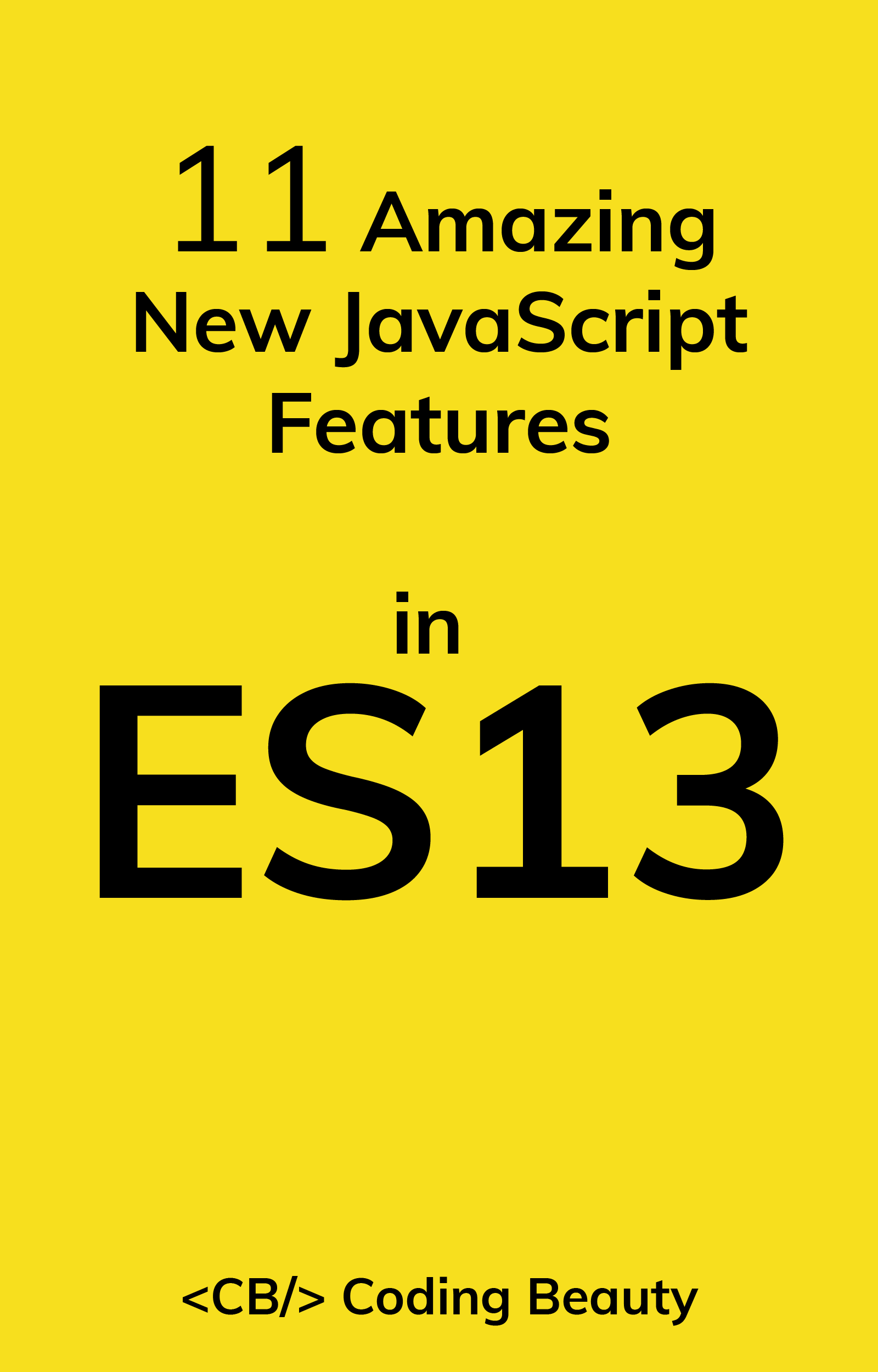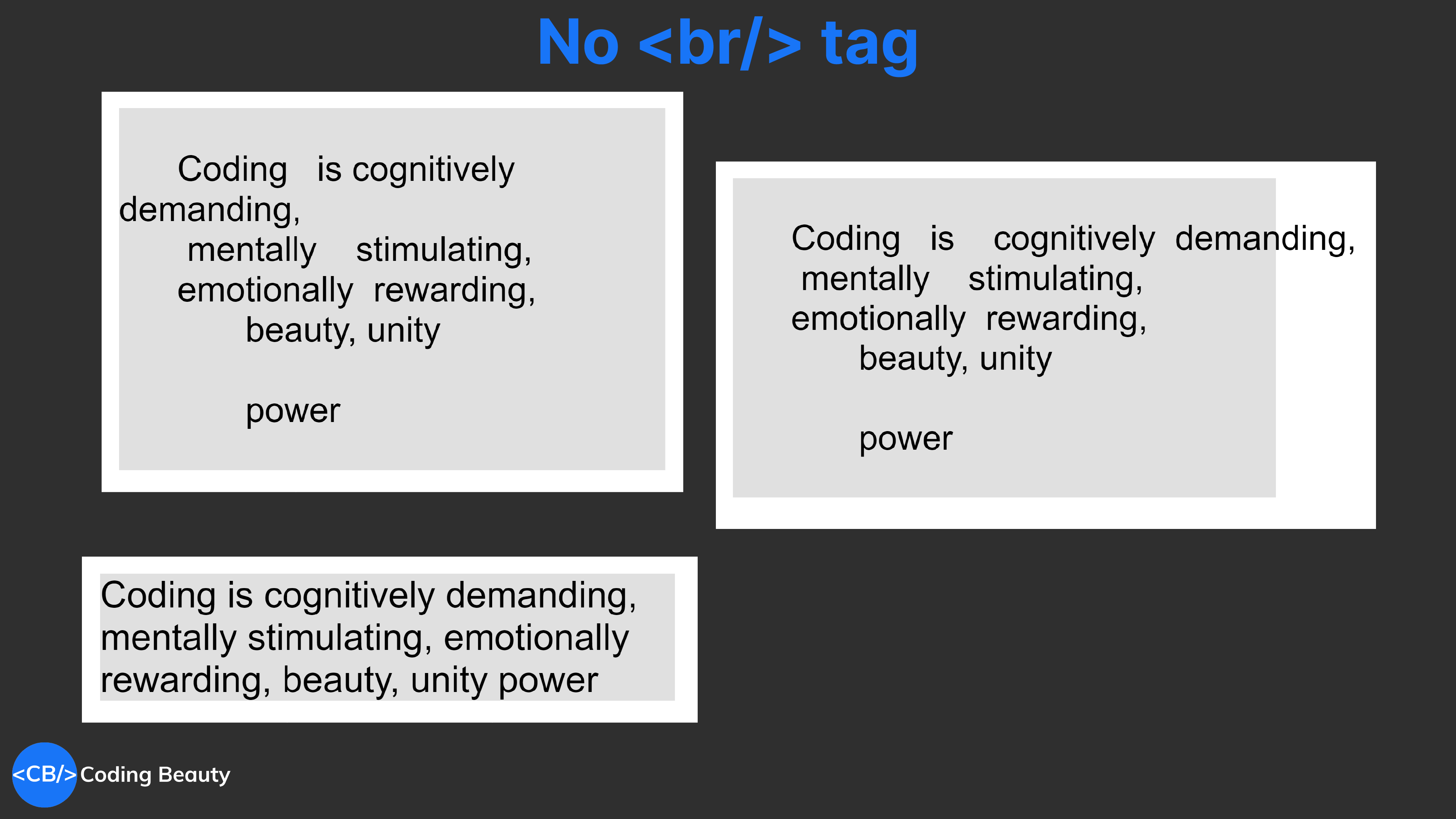Of course <br/> is what we all grew up with from our HTML beginnings, but there’s more.
Like… CSS white-space: pre-wrap:
<div id="box">
Coding is cognitively demanding,
mentally stimulating,
emotionally rewarding,
beauty, unity
power
</div>#box {
background-color: #e0e0e0;
width: 250px;
font-family: Arial;
white-space: pre-wrap;
}
Without pre-wrap:

pre-wrap preserves line breaks and sequences of whitespace in the element’s text.
So the 4 spaces between the words in the first line are shown in the output along with the line break.
Even the space used for text indentation is also shown in the output, adding extra left padding to the container.
JS too
pre-wrap also acknowledges the \n character when set from JavaScript; with innerText or innerHTML:
const box = document.getElementById('box');
box.innerText =
'Coding is \n logic, art, growth, \n creation';
Without pre-wrap:

pre
pre works a lot like pre-wrap but no more auto wrapping:
For example:
<div id="box">
JavaScript at Coding Beauty
HTML at Coding Beauty
CSS at Coding Beauty
</div>#box {
white-space: pre;
background-color: #e0e0e0;
width: 250px;
font-family: Arial;
}
If pre was pre-wrap in this example:

The behavior with pre is the same when you set the innerHTML or innerText property of the element to a string using JavaScript.
Newlines only
white-space:pre-line: Ignore extra spaces but show line breaks:
<div id="box">
Coding is growth unity
power beauty
</div>#box {
background-color: #e0e0e0;
width: 250px;
font-family: Arial;
white-space: pre-line
}
pre-line -> pre-wrap:

Like the previous two possible white-space values, pre-line works in the same way when you set the innerHTML or innerText property of the element to a string using JavaScript.
11 Amazing New JavaScript Features in ES13
This guide will bring you up to speed with all the latest features added in ECMAScript 13. These powerful new features will modernize your JavaScript with shorter and more expressive code.

